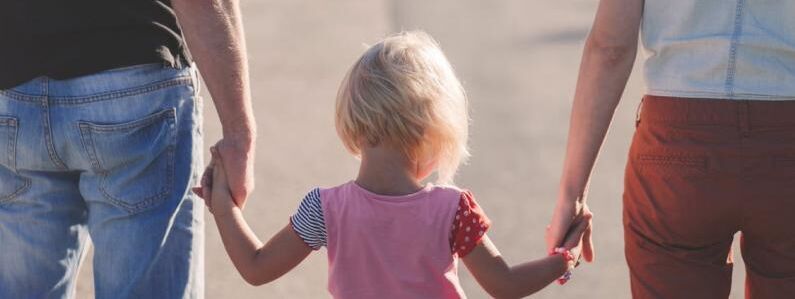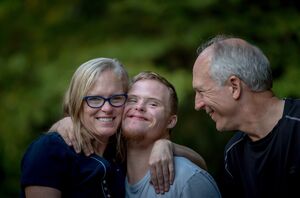Marriage and Family
Reform of 'individualist' tax system can free families from poverty - CARE report

Press release: 7/12/21
The Scottish Government should champion reform of our “individualist” tax system to free families from poverty, a new report by CARE for Scotland argues.
The report, ‘A Fairer Share’, produced in partnership with fiscal policy experts Tax and the Family, argues that the income tax system asks more from those who can least afford it, resulting in families struggling to stay afloat. It states:
“Scotland, like the rest of the UK, has inequality built into the very heart of its tax system. Single-earner households shoulder a heavier tax burden than that carried by other householders. In particular, households with children are placed at a disadvantage. This is true whether it is a single parent, cohabiting couple or if the couple are married.”
“The central problem is this – the tax system is based on the individual and takes no account of the particular circumstances of a household, including the family’s ability to pay. This approach to taxation has kept many families in Scotland in poverty and continues to be a barrier preventing them from increasing income and escaping poverty.”
Unfair tax burden
Arresting analysis by CARE for Scotland found that more than 40% of children living in poverty in Scotland reside in households with incomes greater than £30,000. Households with children are less able to attain an average standard of living than others, whilst facing a heavier tax burden.
The report notes that in order to achieve the average national standard of living, a single adult in Scotland needs to have gross pre-tax earnings of £23,500, a couple without children needs £38,000, and a couple with one income and two children needs at least £61,000.
Yet under the current income tax system, the single adult mentioned would pay £2,150 of income tax, the married couple with one income and no children would pay £5,000, and the married couple with one income and two children would pay almost £14,000.
This despite the significant additional pressures faced by households with dependents. The report further notes that a single parent needs around 70% more disposable income than a single adult with no children to be above the poverty line. A couple with two kids needs almost two and a half times more to enjoy the same standard of living.
International approach
CARE for Scotland notes that the UK income tax system is unhelpfully geared towards the individual, unlike systems in other countries such as Germany and the United States, which are designed to give families breathing room.
In both Germany and the US, income lost by a couple on an average wage with two children as a result of taxation equates to less than 5 per cent of overall earnings. In France it is under 10 per cent. By contrast, In Scotland, England, Wales, and Northern Ireland, it is closer to 15 per cent.
Stuart Weir, Director of CARE for Scotland, said:
“It will be a shock to many that today, in Scotland, a couple with two children earning over £30,000 per year could find themselves in poverty. Yet it's true. This is one of the consequences of having an income tax system that ignores the family. It does not have to be this way. There are alternatives to the British individualised tax system. Other countries take families into consideration and distribute the tax burden more fairly.
“It is incumbent upon government to examine ways of rebalancing the income tax system to ensure that the significant income tax burden borne by low income working families with children is reduced. Amidst rising household bills, spiralling fuel costs and an increase in the price of day-to-day essentials, it is difficult to think about ways to avoid more Scots slipping further into poverty.
“This is a moment of real opportunity. As we hopefully emerge from the pandemic of the last 18 months, we can begin a process of reimagining how our tax and benefits systems operate to ensure those who need help the most, get it. We can choose to rebalance our tax system to ensure proper account is taken of families with children and not just individuals, helping society as a whole.
“Ultimately, the present unfairness and inequalities in the design of the tax system are hindering families in Scotland from escaping poverty. This is something both the Scottish and UK Governments must work on together to address if they are serious about ending poverty in Scotland and across the UK in the years ahead."
ENDS
Notes for Editors:
Read the report: A Fairer Share: How rethinking income tax can free families from poverty
CARE is a well-established mainstream Christian charity providing resources and helping to bring Christian insight and experience to matters of public policy and practical caring initiatives.
For interview requests or more information please contact press@care.org.uk
Share
